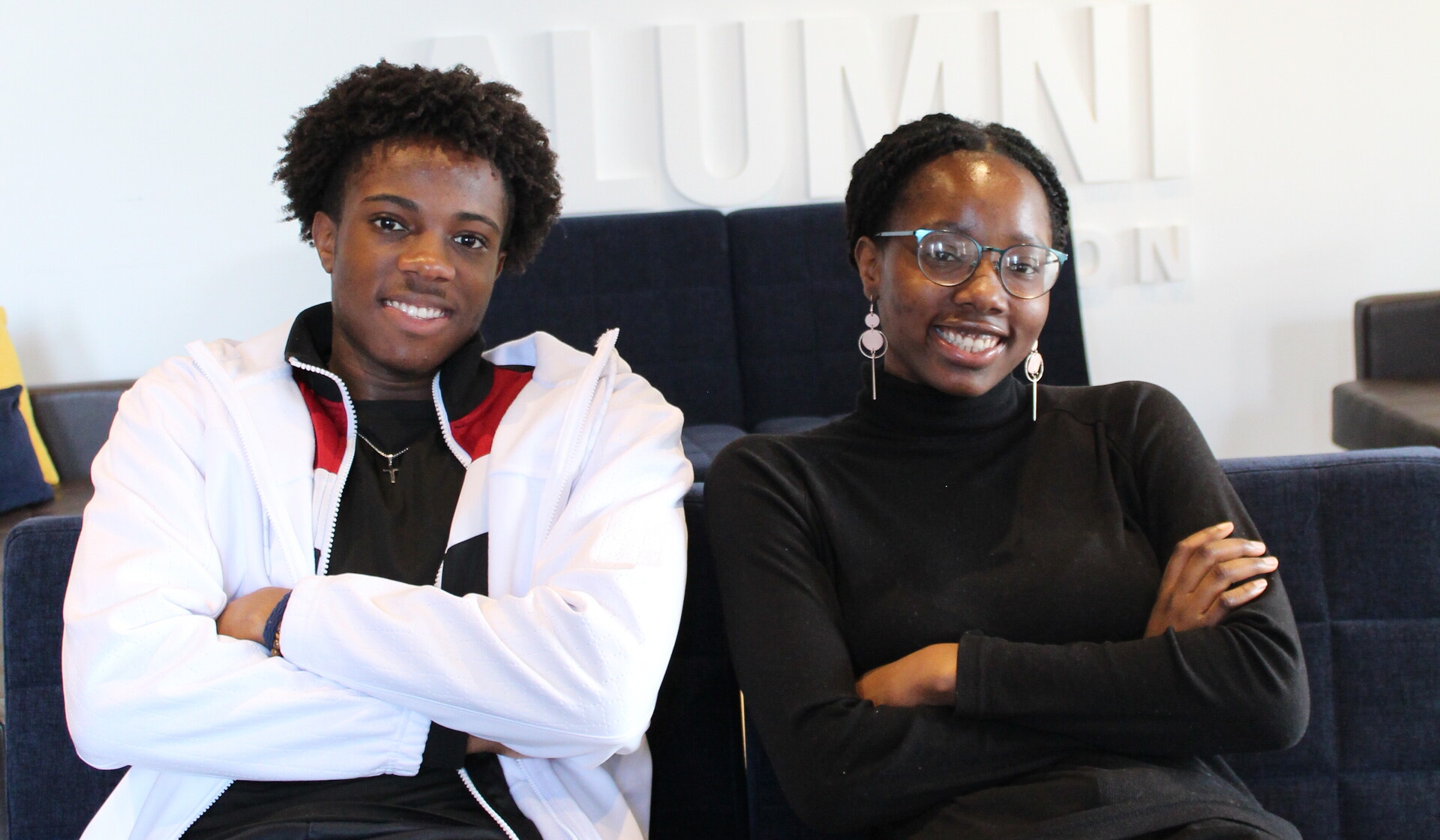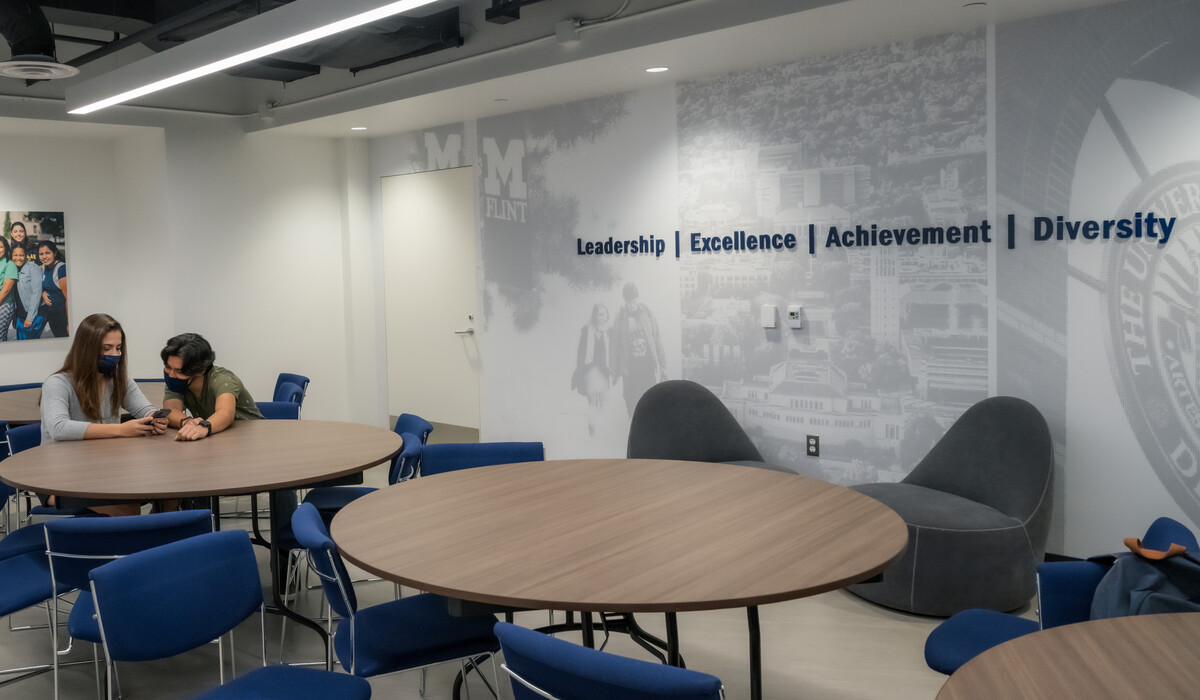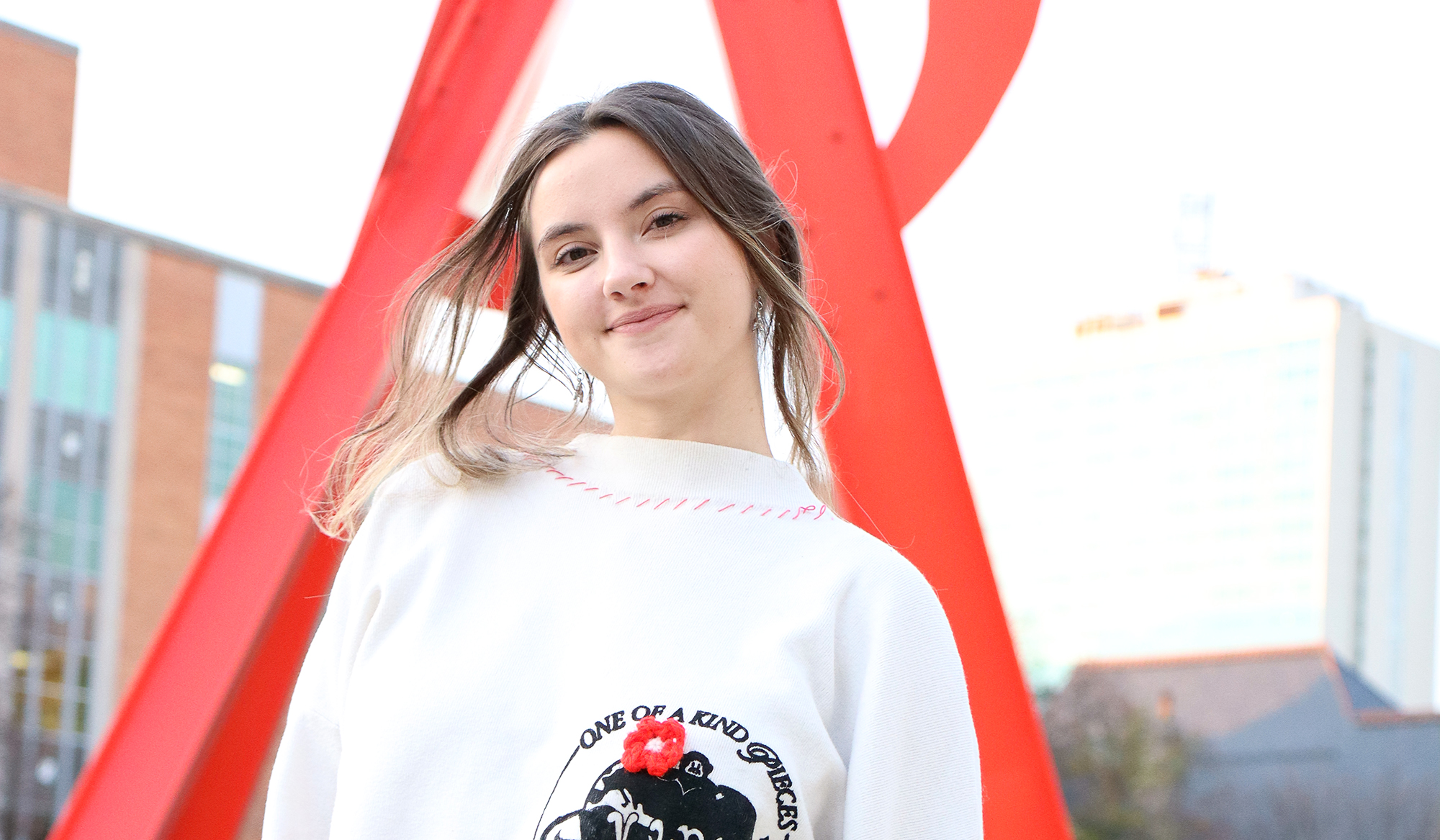All in the Family
•
For Elizabeth and Diala Ajaero, the LEAD Scholars program is a family affair.
Two years apart, the sister and brother pair both began as Wolverine Pathways Scholars at University High School Academy in their hometown of Southfield, Michigan, became U-M students and LEAD Scholars, and both are current pre-med students studying biology at the College of LSA.
But this isn’t a tale of a sibling rivalry, nor one of a younger brother simply following in his older sister’s footsteps. It’s a tale of reflecting paths, or a “mirror effect” as Diala calls it.
“I introduced [Elizabeth] to Wolverine Pathways when I was in middle school, and she was in high school,” Diala says of his older sister. “That’s how she was exposed to LEAD, which is how I heard about LEAD and why I applied in 2022. So it was kind of like, what one of us gave, the other gave right back.”
Elizabeth, 20, and Diala, 18, are one of 24 pairs of siblings to go through the LEAD Scholars program since its inception in 2008 and feel the two-fold impact of the scholarship program and its community.
“It’s an immense blessing that we are both able to receive the LEAD scholarship,” Elizabeth says.
“Having a fund like this for so many students is so amazing. It’s definitely a huge help, and in our case, very necessary,” Diala says. “For our parents, who currently have three kids in college, it’d definitely be too much of a burden if they had to make up for the funding LEAD provides us. Without it, I wouldn’t be here; we wouldn’t be here.”

For the Ajaero siblings, LEAD was the difference between paying for college and experiencing it.
The brother and sister duo had garnered partial scholarships through the Wolverine Pathways program, but it wasn’t enough to cover the costs of a U-M education. If it wasn’t for LEAD, making it through their undergraduate studies would have meant working odds-and-ends minimum wage jobs to survive financially.
“Realistically, if I were bound by a job, I definitely wouldn’t have anywhere near as much free time. My life would just be work, school, home, repeat,” Diala says. “LEAD takes that burden off me, and I get time back, and it allows me to actually attend events, be involved in the community, and interact with people.”
Elizabeth adds that most campus jobs could never equate to the funding LEAD provides, let alone the experiences.
“LEAD helps us deal with the anxiety of applying for jobs and offers abundant opportunities, like networking and professional headshots,” she says. “All of those things add up, and they remove a lot of the pressure and stress that comes with just building up your resume and making yourself look the best to potential employers in the future.”
Diala and Elizabeth both call the financial scholarship support a “huge blessing,” but both agree that the community they were welcomed into was LEAD’s other greatest gift.
“The community-building aspect really did help me adjust to campus,” Diala says. “The first people I met on campus were basically the people I interacted with from LEAD, and a good bit of the friends I have now are people I’ve met through LEAD.”
“Michigan is such a large campus. There are so many people, and you can feel drowned out like no one really sees you. But LEAD makes you feel like you’re known.
— Elizabeth Ajaero
The support of the LEAD community helped Elizabeth and Diala Ajareo find their place and make their impact on campus.
“Michigan is such a large campus. There are so many people, and you can feel drowned out like no one really sees you. But LEAD makes you feel like you’re known,” Elizabeth says. “I was able to branch out to other clubs and organizations because I just felt more comfortable — like I had a place on campus, which is something I don’t feel in a lot of other spaces.”
During her time at U-M, Elizabeth has served as peer advisor for the Summer Bridge Scholars Program, a mentor for the Comprehensive Studies Program, and a research assistant for the Undergraduate Research Opportunity Program (UROP). She’ll begin her senior year in the fall and plans to graduate with a degree in biology in the spring of 2024.
“LEAD gave me the ability to branch out, talk to people, and get involved in general,” says Diala, who spent his first year working as a laboratory assistant. The biology major plans to pursue one of the three routes: neurology, anesthesiology, or radiology. His hope is to one day start his own practice and fund community service initiatives locally and in his family’s homeland, Nigeria.
They’ve made it their mission to help current and future students gain the same campus experience LEAD helped them discover.
“I just really want those who come after me to have a place where they know that they feel safe within Michigan, and that they don’t feel alienated or isolated, or experience imposter syndrome,” Elizabeth says. “I want to help them see that they deserve to be here and show them how to make the most of this experience.”

The Ajaero siblings’ impact on campus is another “mirror effect” of the LEAD Scholars program.
While the siblings’ U-M journeys may be a reflection of the ways they’ve inspired each other, it’s also a reflection of the way LEAD inspires an entire generation of future leaders.
“I want to give back to the communities that gave to me, so I feel like even anything I do in the future will also be because of the donors who funded my education and my endeavors,” Diala says. “I basically consider everything I plan to do, a blessing from them. It’s so much to be thankful for.”
For Elizabeth and Diala Ajaero, the other 24 sets of siblings, and all 678 LEAD Scholars who have come through the program — their U-M educations were made possible by the generous donors whose gifts support the LEAD Scholars program.
“I am so thankful. I don’t know how to put it in words,” Elizabeth says. “Honestly, I wouldn’t be where I am today without the support of the LEAD community, the encouragement, the social events, and, of course, the financial support. Thank you. Just, thank you.”
The LEAD Scholars General Fund supports merit-based scholarships and an empowering community to admitted, underrepresented minority students. By growing this community of high-achieving Black, Native American, and Latino scholars, LEAD is building a diverse pipeline of talent and leaders for future generations of alums, contributing to a better University and education for all Wolverines.
To make a gift to the LEAD Scholars General Fund, visit www.alumni.umich.edu/LEAD
KATIE FRANKHART is a senior writer for the Alumni Association of the University of Michigan.



